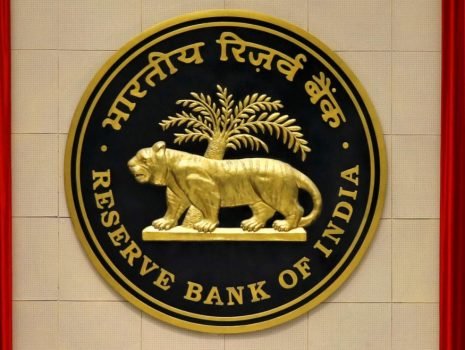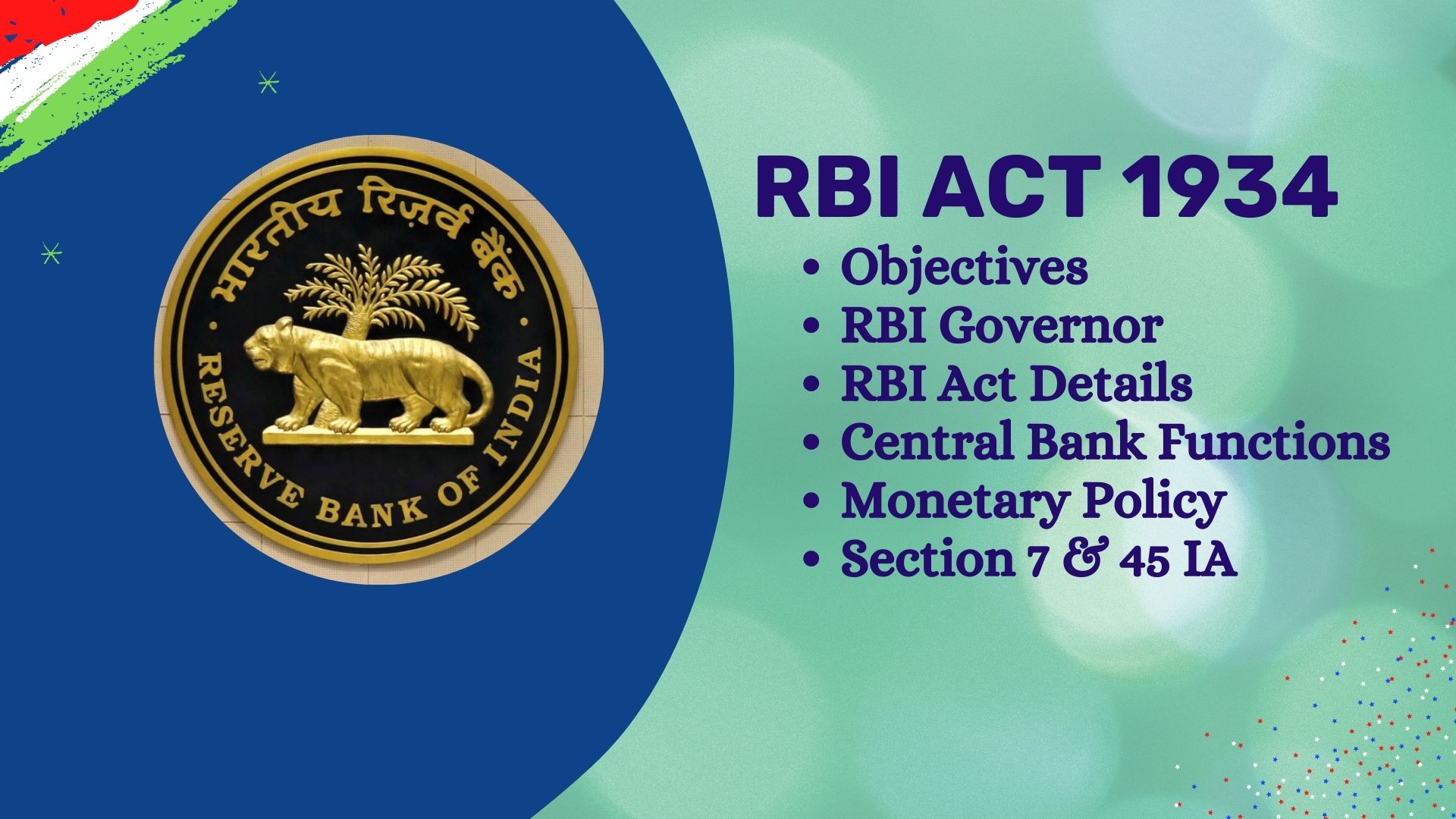Reserve Bank of India is constituted for the purposes of taking over the management of the currency from the Central Government and carrying on the business of banking in accordance with the provisions of RBI Act 1934. The Reserve Bank of India, will have perpetual succession and a common seal, and shall by the said name sue and be sued. Below are some guidelines as per RBI Act 1934.
- The capital of RBI shall be five crores of rupees.
- The composition of the Central Board and term of office of Directors will be specified.
- The Central Board shall consist of a Governor and 4 Deputy Governors, 4 Directors nominated by the Central Government one from each of the four local boards as constituted by section 9; 10 Directors and 2 Government officials.
- It talks more about the disqualifications of directors and members of local boards, removal from and vacation of office, casual vacancies and absences, meetings of the central board.
Table of Contents
Who is the Current Governor of RBI?
Currently Governor of the Reserve Bank of India Shaktikanta Das. He was appointed in the year 2018, December 12 replacing Urjit Ravindra Patel. The government of India appoints the RBI Governors.
Objectives of RBI Act 1934 are
- To maintain monetary stability in India by specifying monetary policy
- Regulate functions of the banking system in India
- Strengthen core banking system and maintain financial stability
- Ensure smooth credit & currency functions
- Promote economic growth of India and infuse sufficient liquidity
- Safeguard the interests of depositors by maintaining sufficient reserves

Below are the Central Bank Functions as per RBI Act 1934
- The obligation of the bank to transact Government business.
- Bank to have the right to transact Government business in India.
- Bank to transact Government business of States on an agreement
- Right to issue bank notes – the Bank shall have the sole right to issue banknotes in India.
- Issue Department – The issue of banknotes shall be conducted by the Bank in an Issue Department which shall be separated and kept wholly distinct from the Banking Department.
- Denominations of notes – bank notes shall be of the denominational values of two rupees, five rupees, ten rupees, twenty rupees, fifty rupees, one hundred rupees, five hundred rupees, one thousand rupees, five thousand rupees, and ten thousand rupees or of such other denominational values, not exceeding ten thousand rupees, as the Central Government may, on the recommendation of the Central Board, specify in this behalf.
- Form of bank notes – the design, form, and material of bank notes shall be such as may be approved by the Central Government.
- The legal tender character of notes – Subject to the provisions of sub-section (2), every bank note shall be legal tender at any place in India in payment or on account for the amount expressed therein.
- Certain bank notes to cease to be legal tender
- Re-issue of notes – the Bank shall not re-issue bank notes which are torn, defaced, or excessively soiled.
- Recovery of notes lost, stolen, mutilated, or imperfect
- Issue of special bank notes and special one-rupee notes in certain cases
- Bank exempt from stamp duty on bank notes.
- Powers of Central Government to supersede Central Board
- Issue of demand bills and notes
- Liabilities of the Issue Department
- Cash reserves of scheduled banks to be kept with the Bank
- Publication of consolidated statement by the Bank
- Protection of action taken in good faith.
- Appointment of Agents
Collection and Furnishing of Credit Information as per RBI Act 1934
- Definition of banks
- Power of bank to collect credit information
- Power to call for returns containing credit information
- Procedure for furnishing credit information to banking companies
- Disclosure of information prohibited
- Certain claims for compensation barred
Provisions related to Non-Banking Institutions Receiving Deposits and Financial Institutions
- Chapter III-B not to apply in certain cases
- Requirement of registration and net owned fund
- Maintenance of percentage of asset
- Reserve fund – Every non-banking financial company shall create a reserve fund and transfer therein a sum not less than twenty percent of its net profit every year as disclosed in the profit and loss account and before any dividend is declared.
- Bank to regulate or prohibit the issue of prospectus or advertisement soliciting deposits of money
- Power of bank to determine policy and issue directions
- Power of bank to collect information from non-banking institutions as to deposits and to give directions
- Power of bank to call for information from financial institutions and to give directions
- Duty of non-banking institutions to furnish statements, etc., required by the bank
- Powers and duties of auditors determined
- Power of bank to prohibit acceptance of deposit and alienation of assets
- Power of bank to file winding-up petition
- Inspection
- Deposits not to be solicited by unauthorized persons
- Disclosure of information
- Power of bank to exempt
- Chapter III B to override other laws
- Power of Company Law Board to order repayment of deposit
- Nomination by depositors
Prohibition of Acceptance of Deposits by Unincorporated Bodies as per RBI Act 1934
- Deposits not to be accepted in certain case
- Power to issue search warrants
Regulation of Transactions in Derivatives, Money Market Instruments, Securities Etc
- Transactions in derivatives defined
- Power to regulate transactions in derivatives, money market instruments, etc
- Duty to comply with directions and furnish information
Monetary Policy as defined by RBI Act 1934
- Provisions of this Chapter to override other provisions of Act
- Inflation target – the Central Government shall, in consultation with the Bank, determine the inflation target in terms of the Consumer Price Index, once in every five years.
- Constitution of Monetary Policy Committee
- Eligibility and Selection of Members appointed by Central Government
- Terms and conditions of appointment of Members of Monetary Policy Committee
- Removal of Members of Monetary Policy Committee
- Vacancies etc., not to invalidate proceedings of Monetary Policy Committee
- Secretary to Monetary Policy Committee
- Information for Monetary Policy Committee Members
- Meetings of Monetary Policy Committee
- Steps to be taken to implement decisions of Monetary Policy Committee
- Publication of decisions
- Publication of proceedings of the meeting of Monetary Policy Committee
- Monetary Policy Report to be published once in six months
- Failure to maintain inflation target to be explained
- Power to make rules
General Provisions as per RBI Act 1934
- Contribution by Central Government to the Reserve Fund
- Contribution to National Rural Credit (Long Term Operations) Fund and National Rural Credit (Stabilisation) Fund.
- National Industrial Credit (Long Term Operations) Fund
- National Housing Credit (Long Term Operations) Fund.
- Allocation of surplus profits
- Exemption of Bank from income-tax and super-tax
- Publication of bank rate
- Auditors
- Appointment of special auditors by Government
- Powers and duties of auditors
- Returns
- Rural Credit and Development
- Delegation of powers
- Power of Bank to depute its employees to other institutions
- Reports by the Bank. Power to require declaration as to ownership of registered shares
- Liquidation of the Bank
- Power of the Central Board to make regulations
- Protection of action taken in good faith
Penalties as defined by RBI Act 1934
- Offenses by companies
- Application of section 58B barred
- Cognizance of offenses
- Application of fine
- Power of Bank to impose fine

Section 7 of RBI Act 1934
It specifies the management of RBI Bank. The Central Government may from time to time give such directions to the Bank as it may, after consultation with the Governor of the Bank, consider necessary in the public interest. Subject to any such directions, the general superintendence and direction of the affairs and business of the Bank shall be entrusted to a Central Board of Directors which may exercise all powers and do all acts and things which may be exercised or done by the Bank. Same as otherwise provided in regulations made by the Central Board, the Governor and in his absence, the Deputy Governor nominated by him in this behalf shall also have powers of general superintendence and direction of the affairs and the business of the Bank and may exercise all powers and do all acts and things which may be exercised or done by the Bank.
Section 45 IA of the RBI Act 1934
The companies engaged in the business of non-banking financial institutions (NBFI) are required to obtain a Certificate of Registration (CoR) from the Reserve Bank of India to commence or carry on the business of NBFI in terms of Section 45-IA of the RBI Act, 1934. The said section also prescribes the minimum Net Owned Fund requirement.
Link to the document –RESERVE BANK OF INDIA ACT, 1934 (rbi.org.in)
FunFact
RBI Act 1934 was last amended by the Finance (No. 2) Act, 2019
Let us know your thoughts on how effective the RBI Act 1934 is?


